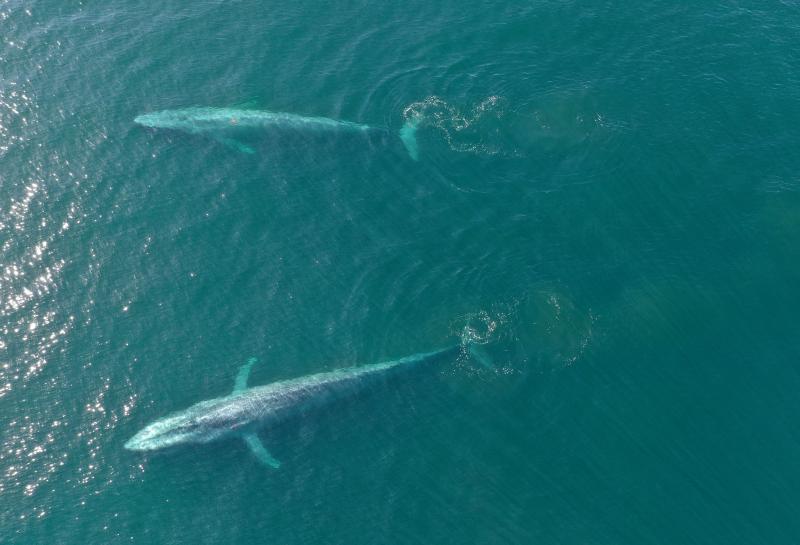
Scientists on the California Current IEA team partook in a collaborative study to understand how marine heatwave events affect the distribution of the region's top predators. The article, recently published in Nature Communications, measured the areas where sharks, sea birds, sea lions, and other charismatic predators moved during 4 recent heatwaves (2014, 2015, 2019, 2020) . Using this information, scientists created a tool that is able to quickly predict movement of these important species across economic and international boundaries during future heatwaves.
"We are seeing large-scale changes in where and when predators go as a result of climate variability and change. Forecasting potential changes before they happen is critical for proactive climate-ready management,” said Elliott Hazen, a research ecologist at the Southwest Fisheries Science Center. “That is how we can protect the species that need protection and ensure the sustainability of our fisheries and other ocean-based economies."
Read the entire summary of the article here
Current marine heatwave conditions in the California Current region (Blobtracker)
